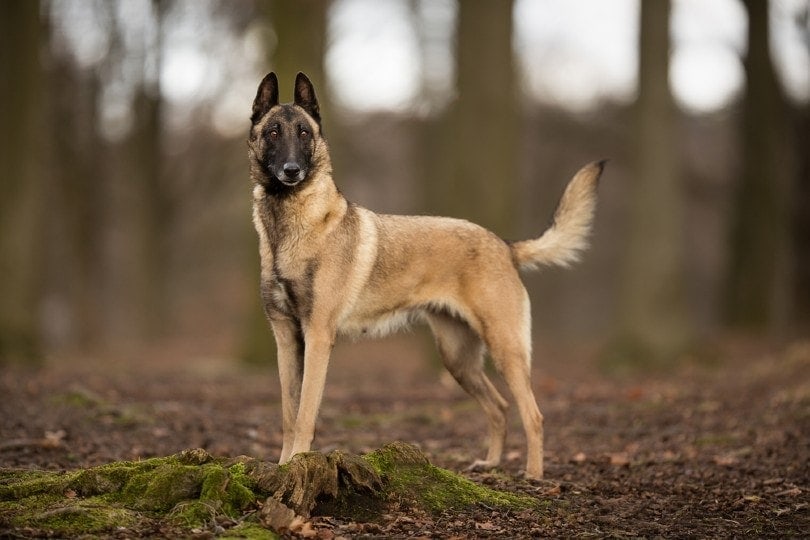Why Do Dogs Howl at the Moon? Facts & FAQs
Updated on
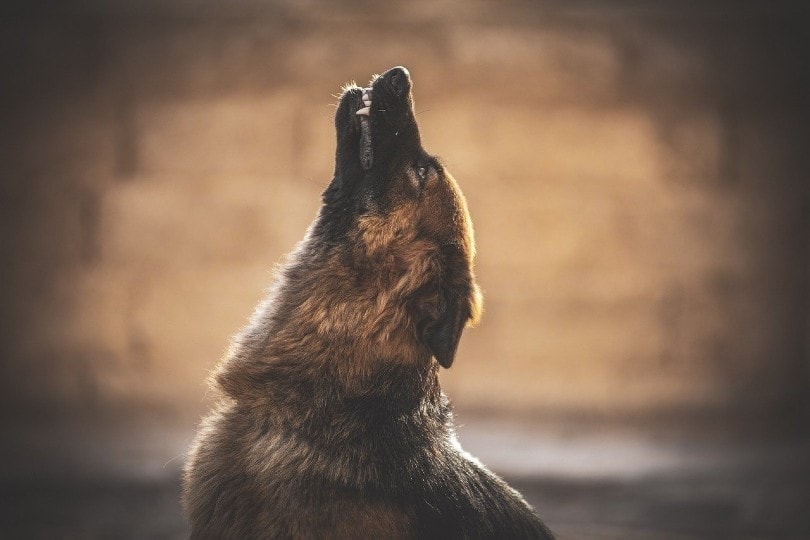
The image of a silhouetted wolf howling against a large full moon is something that we have seen countless times. The assumption here is that wolves howl at the moon, and since wolves are the ancestors of dogs, dogs must also howl at the moon.
But it’s all a myth! Neither wolves nor dogs howl at the moon.
In this article, we talk about how this myth became so popular and what dogs are really howling at.
Where Did the Howling at the Moon Myth Originate?
Do dogs howl? Yes. Do dogs howl at the moon? No. So, where and why did this whole myth start?
We’ve long associated wolves with howling at the moon, which has been likely exacerbated by stories of people becoming werewolves during a full moon. This association has existed for eons and might even have originated with ancient cultures.
There is another myth that wolves are nocturnal, which can partly explain the moon fixation. Wolves are actually crepuscular, which means they are active primarily at dusk and dawn. While wolves have howled when the moon is up, they aren’t necessarily howling at it.
If you watch a dog or wolf howl, you’ll notice that they always point their noses up to the sky, as this enables the sound to travel farther.
So, if a dog or wolf starts howling when the moon is visible, it can help explain why some cultures originally believed that they were actually howling at the moon. This belief was passed down and has stayed with us to this day.
Why Do Wolves Howl?
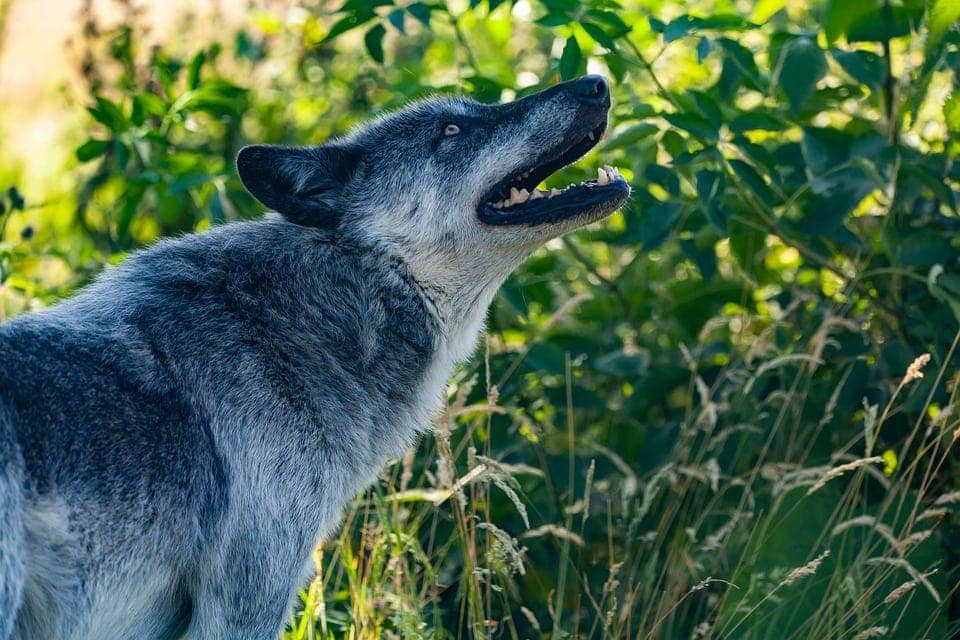
Dogs and wolves both howl, and while sometimes they howl for the same reasons, there are notable differences.
Wolves howl for several reasons, but it’s mainly a form of communication. They howl to communicate with their pack members: to let them know where they are and to show affection.
Wolves also often howl to warn rival wolf packs to stay away from their territory. A wolf pack’s territory can be as large as 1,200 square miles (3,000 square kilometers), and they can become separated when hunting. Howling will help bring members back to the pack. A wolf’s howl can carry as far as 10 miles (16 km) in an open space and slightly less in a forest. It can also help coordinate the pack’s movements when on the hunt.
A 2013 study1 discovered a wolf will howl to another wolf that they have a strong connection with. These howls were found to have no association with stress and were likely borne out of affection or another emotion that isn’t affected by stress or anxiety.
Why Do Dogs Howl?
While it might have been about 15,000 years ago2 that dogs were descended from wolves, there are still instincts that they share, like howling.
Communication
Like wolves, dogs howl as a form of communication. They do so to send a long-distance message to other dogs, to signal their location or to invite them to interact.
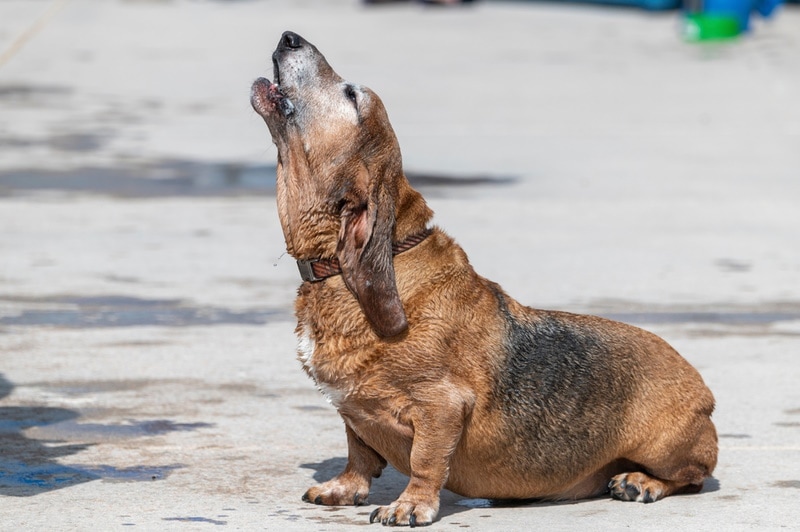
Territorial
Dogs will often howl to identify their territory. They are essentially notifying other dogs that a specific area belongs to them and that all other dogs must stay away.
Emotions
Howling enables dogs to express how they are feeling. They can howl to show how happy and excited they are, but they might also howl when stressed and anxious or upset and lonely. Some dogs will also howl when they are bored and frustrated.
Environment
Sometimes, dogs will howl as a way to respond to something occurring in their immediate environment. Loud music—or any music, really—can get a dog to start howling. Even more commonly, howling in one dog can occur in response to another dog howling. This is known as contagious howling. They are also likely to start howling if you howl, which is a different form of contagious howling.
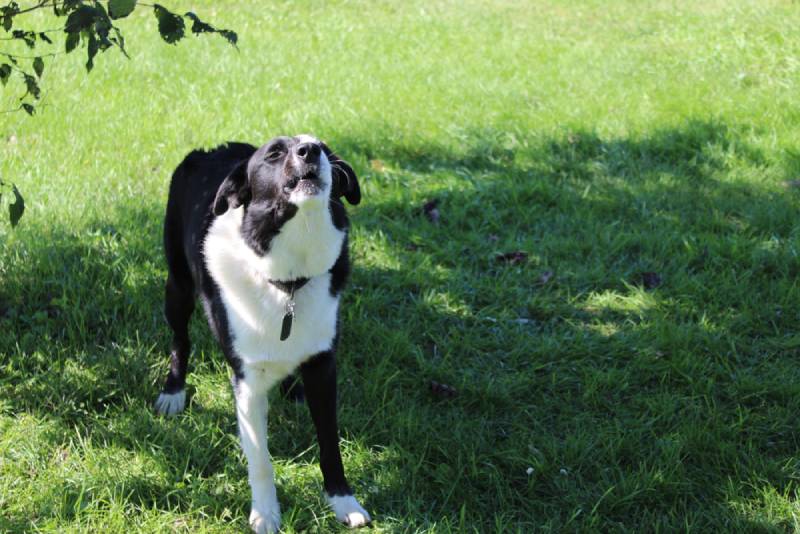
FAQs
Why Are Wolves Crepuscular and Dogs Are Not?
Technically, dogs are crepuscular like wolves, but they adapt themselves to our sleep schedule. You might find that your dog has more energy at dawn and dusk, which can help explain why they love to wake you up so early in the morning!
But if you tend to wake up later than dawn, your dog might not get excited until they hear you stirring. Unlike us, dogs only need short power naps, and it isn’t difficult for them to adjust their sleep schedule to fit our own.
Why Do Dogs Howl at Sirens?
This is the same thing as contagious howling. Sirens can sound like howling to some dogs, so they are just responding to it.
It’s also possible that your dog perceives the siren as a threat and is howling as a way to warn it off and send you a warning. They do this to protect their family. As the siren passes and the sound fades, your dog might believe that they did their job quite successfully. Praise them for their bravery!
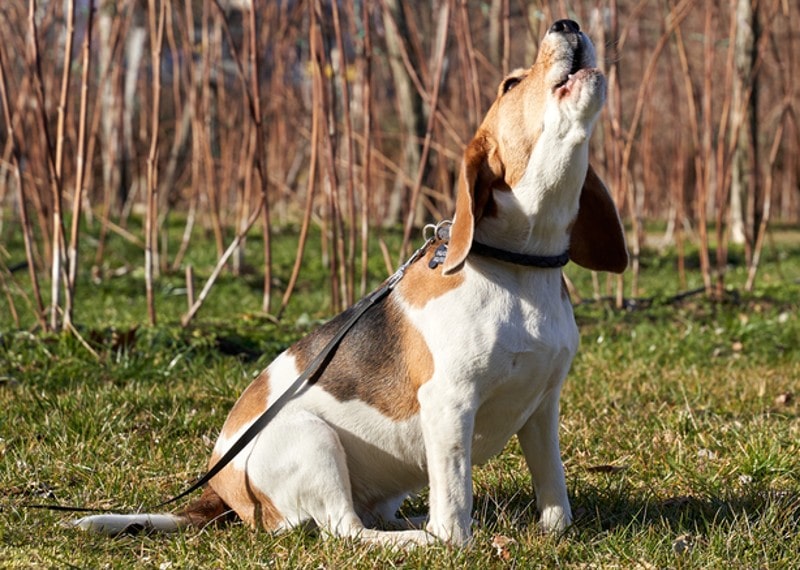
Are There Dog Breeds That Howl More Than Others?
Absolutely! Many dogs were bred to do specific kinds of work, and howling would come in handy. Several dog breeds are known for their howling:
- Alaskan Malamute
- American English Coonhound
- American Eskimo Dog
- American Foxhound
- Basset Hound
- Beagle
- Bluetick Coonhound
- Bloodhound
- Dachshund
- Finnish Spitz
- Japanese Spitz
- Karelian Bear Dog
- Norwegian Elkhound
- Redbone Coonhound
- Siberian Husky
- Tibetan Spaniel
- Welsh Springer Spaniel
Almost half of these dogs are part of the spitz breed, which was used primarily for sledding in cold climates. They are pack animals and use various vocalizations, including howling, to communicate with their pack mates.
The rest of the list includes primarily hounds and a few spaniels, all of which are hunting dogs. Hounds in particular use howling to communicate with the rest of the pack while hunting.
Conclusion
Dogs do not howl at the moon, but howling is one form of communication for canines, and it’s a method that your dog uses to provide information quite important to them. Just be sure to listen and find out what might be causing it, which will help you become a better communicator with your dog.
Bear in mind that if your dog is howling more than usual and it seems excessive, speak to your vet. There might be a health issue, or it could be a behavioral problem that needs attention.
Featured Image Credit: nori jaafer, Pixabay






